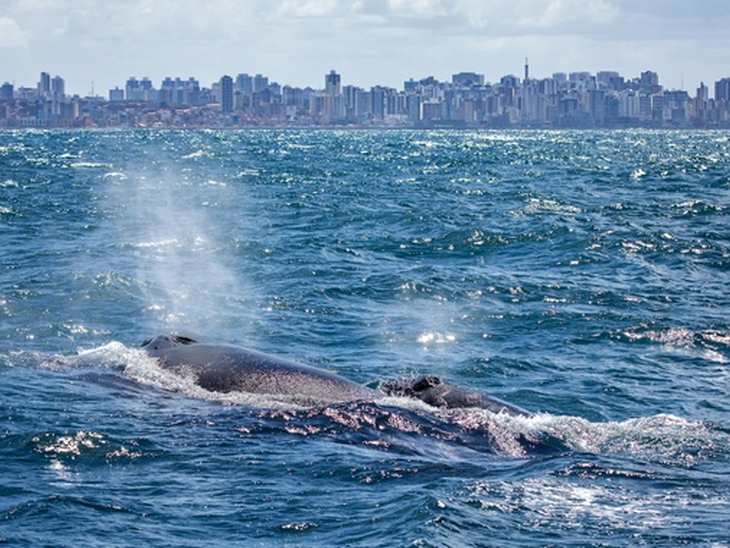
T&B Petroleum/Petrobras Agency

The whale breeding season on the Brazilian coast, which begins with winter, has arrived with good news. The Humpback Whale project, sponsored by Petrobras for 23 years, registered, until 8/25 (Tuesday), 60 whale babies of the species between Salvador and the northern coast of Bahia, at Banco dos Abrolhos and on the coast of Vitória (ES). In the surroundings of Ilhabela (SP), the records were made by the partners of Projeto Baleia à Vista and Instituto Verde Azul. Log in to check other photos.
Previously threatened with extinction due to indiscriminate hunting, humpbacks today have been a reason for celebration among researchers for their accelerated population recovery, thanks to long-term work. Records in Ilhabela may indicate that the region, which was the scene of whale hunting activities in the 18th and 19th centuries, is seeing the reoccupation of the former reproductive territory of the Southeast by humpbacks.
“This is just the beginning of this year's baby census,” said Enrico Marcovaldi, Communication Coordinator for the Jubarte Whale Project. “With the resumption of our field activities, we hope to be able to make many more records. We hope that this will be a season of many births, bringing the Brazilian population even closer to full recovery ”, he adds.
Researchers estimate that there are close to 20,000 humpback whales frequenting the Brazilian coast during this breeding season, an encouraging number when compared to the approximately 1,000 animals estimated when the population was rediscovered at Banco dos Abrolhos in 1988. It is also estimated more than 1,500 puppies are born in Brazilian waters each season.
Petrobras Social and Environmental Program
Investing in socio-environmental projects is one of Petrobras' ten sustainability commitments and is carried out in a structured manner through the Petrobras Socio-Environmental Program. The sponsored projects aim to protect and recover almost 60 species of fauna threatened with extinction, many of which are part of marine and coastal biodiversity, which are relevant environments for Petrobras.
The projects sponsored by Petrobras also operate in networks, promoting joint and articulated actions. The Marine Biodiversity Project Network (Biomar), created in 2007, for example, brings together the Tamar, Jubarte Whale, Coral Vivo, Golfinho Rotador, Meros do Brasil and Albatroz projects. The Biomar Network operates in 13 states and 87 municipalities, researching and conserving coral environments and 24 species, most of which are threatened with extinction, with 5 species of sea turtles, 6 species of albatrosses and petrels, 2 species of dolphins, 10 main species of corals and a species of whale, the Humpback.

Contact us